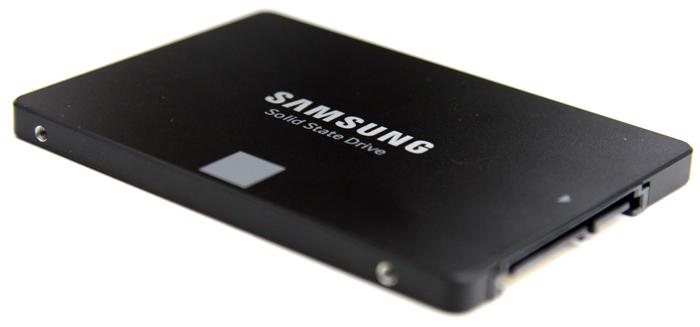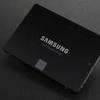Introduction
The Samsung 850 EVO 2TB - Mainstream yet High-end
Samsung is upping the ante, releasing the Samsung 850 EVO SSD in large capacity sizes. We review the 2TB version of this stunning series that offers enthusiast class speed but is competitive in pricing. Armed with truckloads of performance and that attractive pricing, Samsung will once again set the tone.
As you guys know, we've been testing NAND Flash based storage ever since the very beginning, and it is surprising to see where we have gotten. The SSD market is fierce and crowded though. While stability and safety of your data have become a number one priority for the manufacturers, the technology keeps advancing at a fast pace as it does, the performance numbers a good SSD offers these days are simply breathtaking! You get between 450 MB/s to 500 MB/sec on SATA3 which is the norm for a single controller based SSD. Next to that, over the past year, NAND flash memory (the storage memory used inside an SSD) has become much cheaper as well. Prices a year ago settled at just under 1 USD per GB. That was two to threefold two years ago. These days a good SSD can be found under 50 cents per GB. With parties like Samsung, Toshiba and Micro the prices now have dropped with another 20%, you can spot SSDs for 35~40 cents per Gigabyte!
This means that SSD technology and NAND storage has gone mainstream and due to the lower prices, the volume sizes go up as well. Years ago, 64 GB was hot stuff, then slowly we moved to 120 GB, last year 240 GB for an SSD in a PC was the norm, upcoming year we'll transition slowly to roughly 500 GB per SSD as the norm as such a drive is going to hover between 200 to 250 USD/EURO. With the market being so huge, fierce and competitive, it brought us to where we are today... nice volume SSDs at acceptable prices with very fast performance. Not one test system in my lab has a HDD, everything runs on SSD while I receive and retrieve my bigger chunks of data from a NAS server here in the office. The benefits are performance, speed, low power consumption and no noise. You can say that I evangelize SSDs, yes Sir... I am a fan.
Today Samsung releases the large capacity version product series that many of you have been waiting for, the 850 EVO series 2TB and I am happy to report that we will review it. Samsung’s 850 EVO SSD product line is powered by the company’s new MGX controller. A controller with a lowe power 2-core design, this drive will be amongst the fastest we have ever tested. Mind you that the 1 TB and 2TB models of the EVO will get the MEX controller based on an 3 core ARM design. It’s not just about performance though, it is about endurance as well. In a nutshell, endurance is the number of program-erase cycles an SSD has before you can't write onto it anymore. IOPS numbers are now reaching the 90,000 to 100,000 marker. Overall, the 850 series performance has increased as well. Sequential reads for example performance wise are 540 MB/s for the 850 EVO. Write performance is set at 520 MB/s (sequential writes).
Samsung guarantees the 2TB 850 PRO for 10 years or 300 terabytes written (TBW), and the 1TB 850 EVO for five years or 150 TBW. Have a peek at the new EVO, after which we'll dive into a rather in-depth review.

Samsung 850 EVO SSD with MLC 3D V-NAND and the Samsung MHX controller

